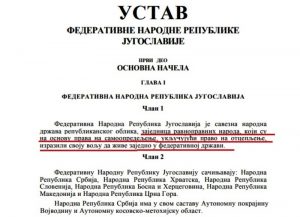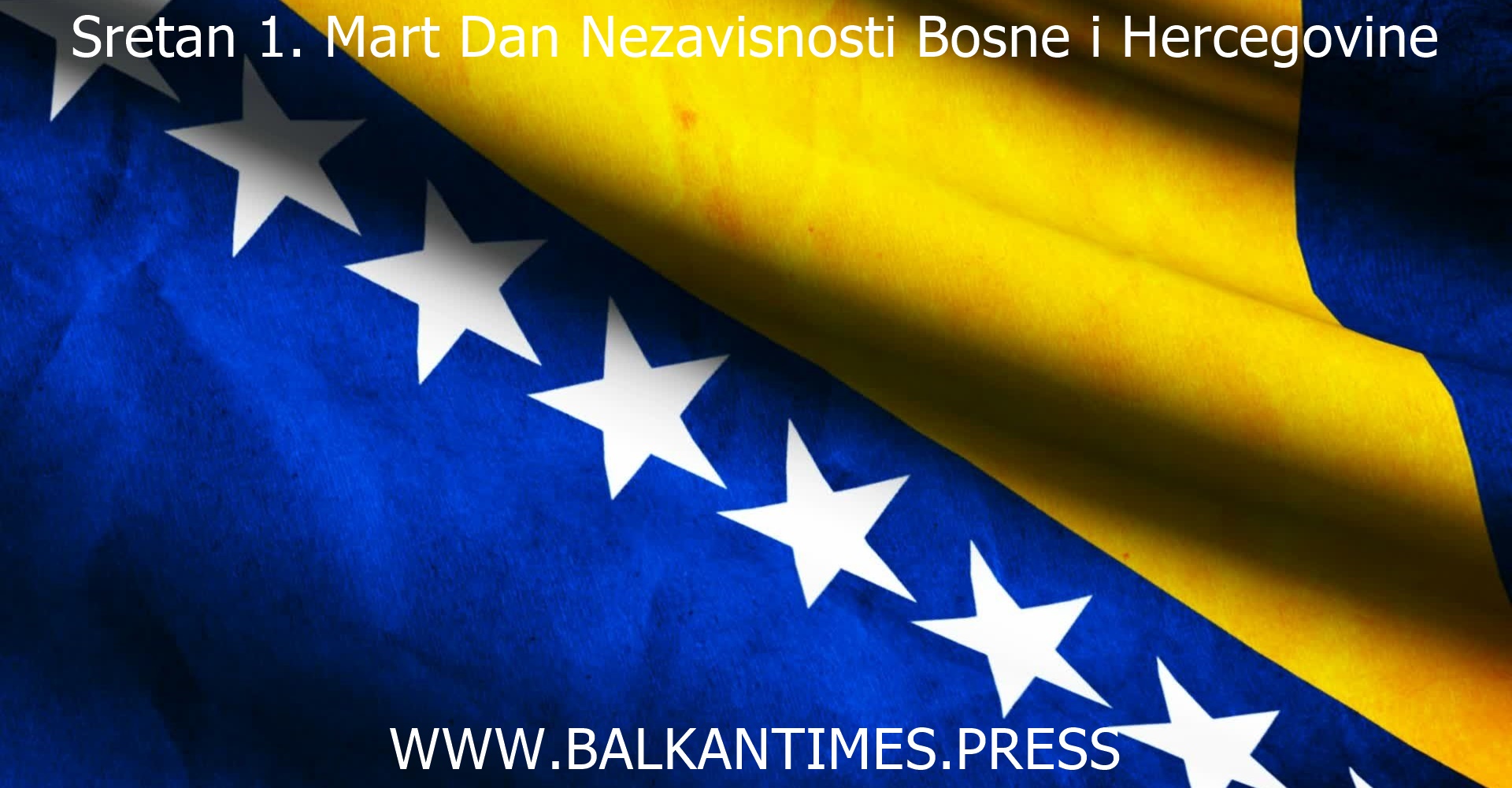A referendum on the independence of Bosnia and Herzegovina was held on February 29 and March 1, 1992. A total of 2,073,568 voters (63.7% turnout). 99.7% were for independence and 0.3% were against.
The referendum question was:
“Are you for a sovereign and independent Bosnia and Herzegovina, a state of equal citizens, peoples of Bosnia and Herzegovina – Muslims, Serbs, Croats and members of other peoples living there?”
The citizens of the Socialist Republic of Bosnia and Herzegovina have exercised this right under the Constitution of the SFRY:
“It is the right and duty of municipalities, autonomous provinces, republics and other socio-political communities to, in accordance with the system of national defense, regulate and organize national defense in their territory and manage territorial defense, civil protection and other preparations for the defense of the country, and in the event of an attack on the country – to organize and lead national resistance … ”* Without any doubt, this SFRY Constitution, compared to the previous one (1963), signifies a major shift in terms of equality between the republics and provinces, although it was also gratifying that these were merely mere “paper” solutions of a formal nature, which did not touch too much on Yugoslav political practice.
The text of the 1974 Constitution shows that the peoples who form the SFRY have united in that state union freely and with their will, and therefore have the right to self-determination until secession, the republics are sovereign states, and the peoples who live in them are sovereign ( which is clearly stated in Article 3). Thus in Serbia the holder of sovereignty is the Serbian people, in Croatia the Croatian, in Macedonia, the Macedonian, etc .; therefore, there is no saying that the sovereignty of an individual republic can be transferred to a central government or any other people outside that republic. It is also emphasized that the territories of the Federation members cannot be altered beyond their will, and that each of them is entitled to a defense. “

Constitution of Bosnia and Herzegovina
Article I
Bosnia and Herzegovina
1. Continuity
The Republic of Bosnia and Herzegovina, whose official name is now “Bosnia and Herzegovina”, continues its legal existence under international law as a state, with an internal structure modified by this Constitution, and with existing internationally recognized borders. It remains a Member State of the United Nations and, like Bosnia and Herzegovina, may retain membership or apply for admission to organizations within the United Nations system as well as to other international organizations.
2. Democratic principles
Bosnia and Herzegovina is a democratic state that functions in accordance with the law and through free and democratic elections.
3. Composition
Bosnia and Herzegovina consists of two entities: the Federation of Bosnia and Herzegovina and the Republika Srpska (hereinafter referred to as “the Entities”).
4. Movement of goods, services, capital and persons
There is freedom of movement throughout Bosnia and Herzegovina. Bosnia and Herzegovina and the Entities will not impede full freedom of movement, persons, goods, services and capital throughout Bosnia and Herzegovina. No entity shall exercise any control at the border between the entities.
5. The capital
The capital city of Bosnia and Herzegovina is Sarajevo.
(VENICE COMMISSION, Strasbourg, 18.6.2012, Opinion No. 648/2011, CDL-AD (2012) 014)
III. BiH Constitutional Framework
A. State level
12. The Constitution of BiH is agreed in Dayton as Annex IV. Of the General Framework Agreement for Peace in BiH. As the Venice Commission stated in its earlier opinions, a federal state was established without explicit reference to this Constitution. It defines two entities, the Federation of BiH and the Republika Srpska as constituent parts of BiH, and allocates rights and competences between the institutions of BiH and the institutions of the entities. It introduces BiH citizenship, while recognizing Entity citizenship. The primacy of the Constitution has been proclaimed in relation to laws and constitutions
The Constitutional Court of BiH has jurisdiction to determine whether the entities’ constitutions are in conformity with the BiH Constitution. Thus, the usual elements of the federal state are present.
13. According to Article I./1 and I./3 of the Constitution of BiH and the Republika Srpska and the Federation of BiH, which “continues its legal existence under international law as a State, with its internal structure as amended ….”. Thus, entities are part of the internal structure of BiH and cannot be a sovereign state per se.
balkantimes.press
Napomena o autorskim pravima: Dozvoljeno preuzimanje sadržaja isključivo uz navođenje linka prema stranici našeg portala sa koje je sadržaj preuzet. Stavovi izraženi u ovom tekstu autorovi su i ne odražavaju nužno uredničku politiku The Balkantimes Press.
Copyright Notice: It is allowed to download the content only by providing a link to the page of our portal from which the content was downloaded. The views expressed in this text are those of the authors and do not necessarily reflect the editorial policies of The Balkantimes Press.

